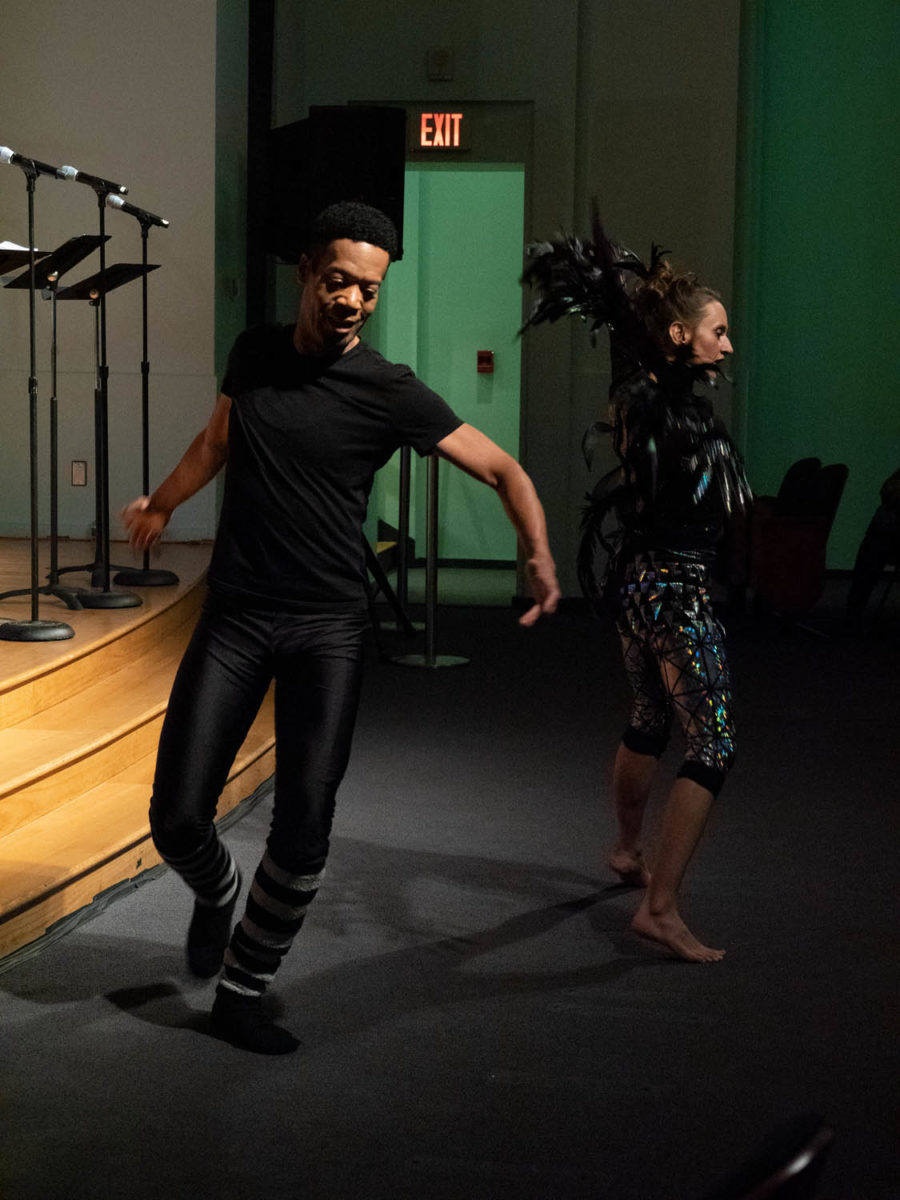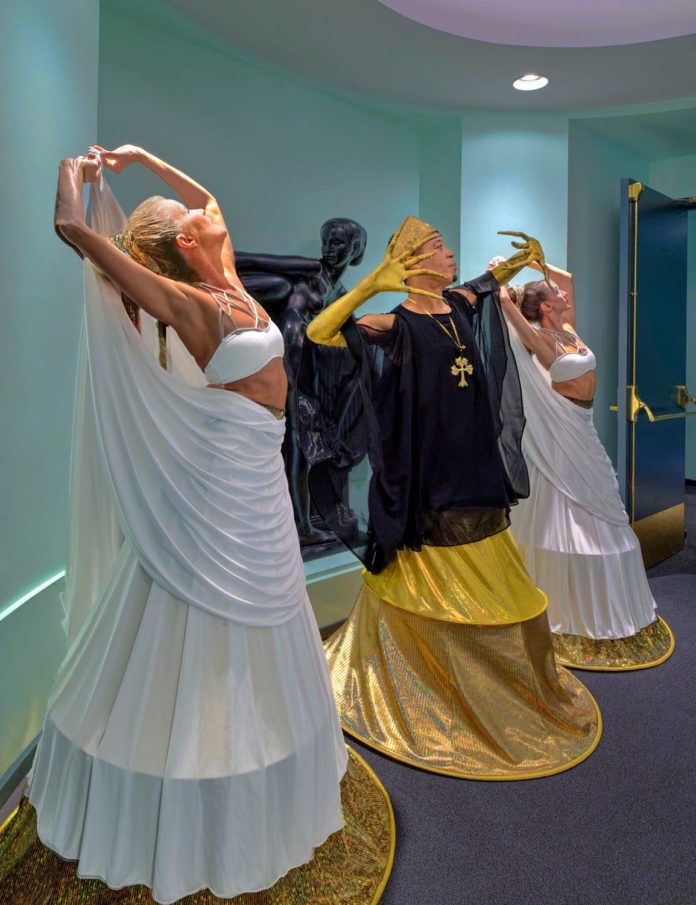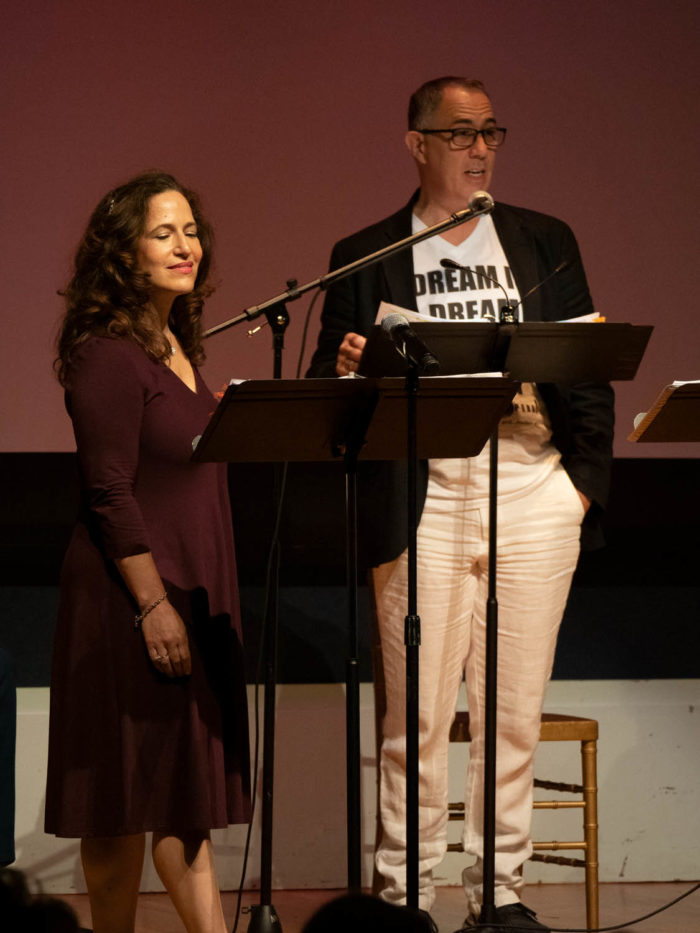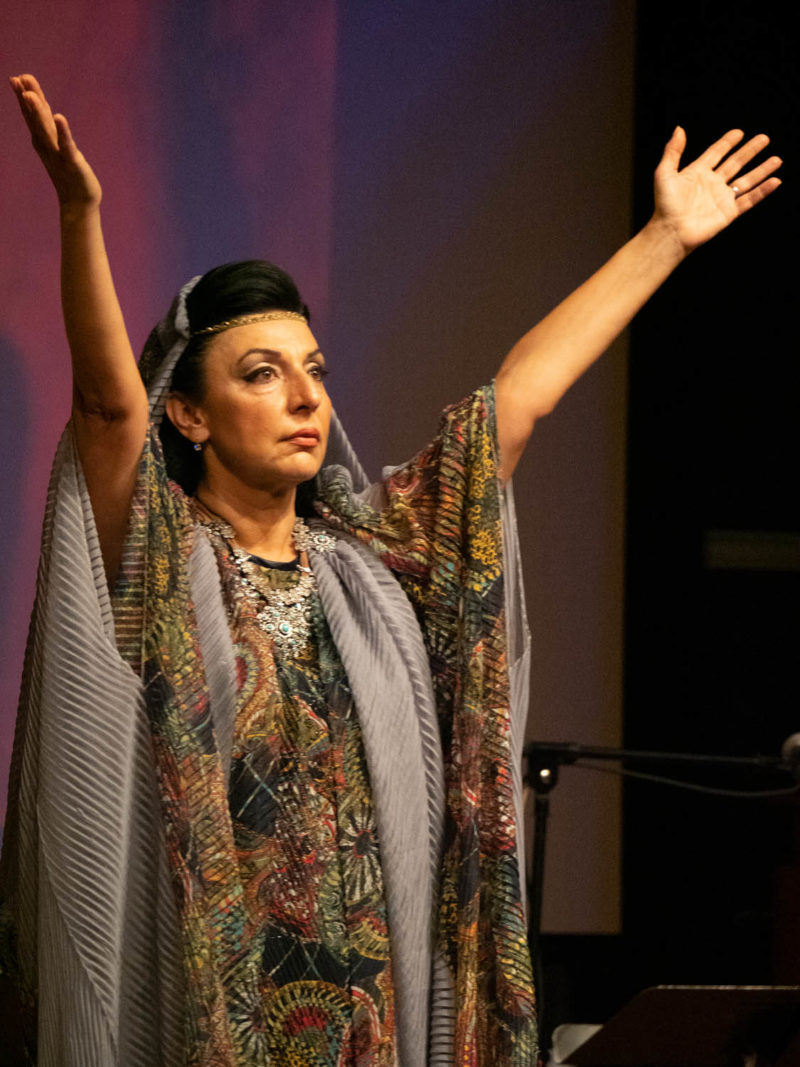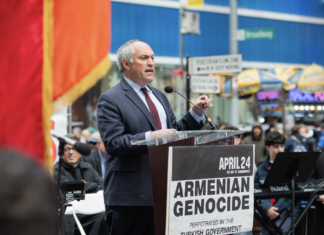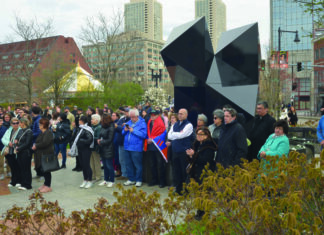(Editor’s Note: This review from fall 2019 preview is reprinted now to announce two January 2021 on-line events. As an official selection of the Ridgewood Guild International (Virtual) Film Festival, the show’s 90-minute documentary LIVE performance film will be screened and discussed (January 27 – 31). On January 23 The Lied Society will devote an hour-long interview with Ekizian among experts of the arts.)
NEWARK, N.J. — “Gorky’s Dream Garden,” a new work by composer Michelle Ekizian that hybridizes classical opera with popular Broadway musical theater, sacred Armenian litanies with jitterbugging, would give delight to both Stravinsky and George Gershwin and would lead her Armenian precursor Aram Khachaturian to do a sabre dance. Within her will to break boundaries is a parable: the defiance of the negativity surrounding the goal to dream bigger dreams. Ekizian’s musical dream was inspired by Arshile Gorky, the great Armenian-American artist and a founding father of abstract expressionism, whose life’s story is loosely told in her daring new music theater opera. This reach beyond was realized in the September 7, 2019 presentation at the Newark Museum of Art’s Billy Johnson Theater of the work’s developmental reading of its Love Songs Showscape in chamber concert.
Working through traumas imposed by the Armenian Genocide and subsequent personal tragedies, Gorky rose above his tribulations by creating art in a boundary breaking style through which realism, surrealism and abstraction collided and colluded. With the opera’s rapturous music, we find the artist embarking on a thought-provoking journey to a place where nothing seems impossible — and where his search for the beautiful and the eternal begins.
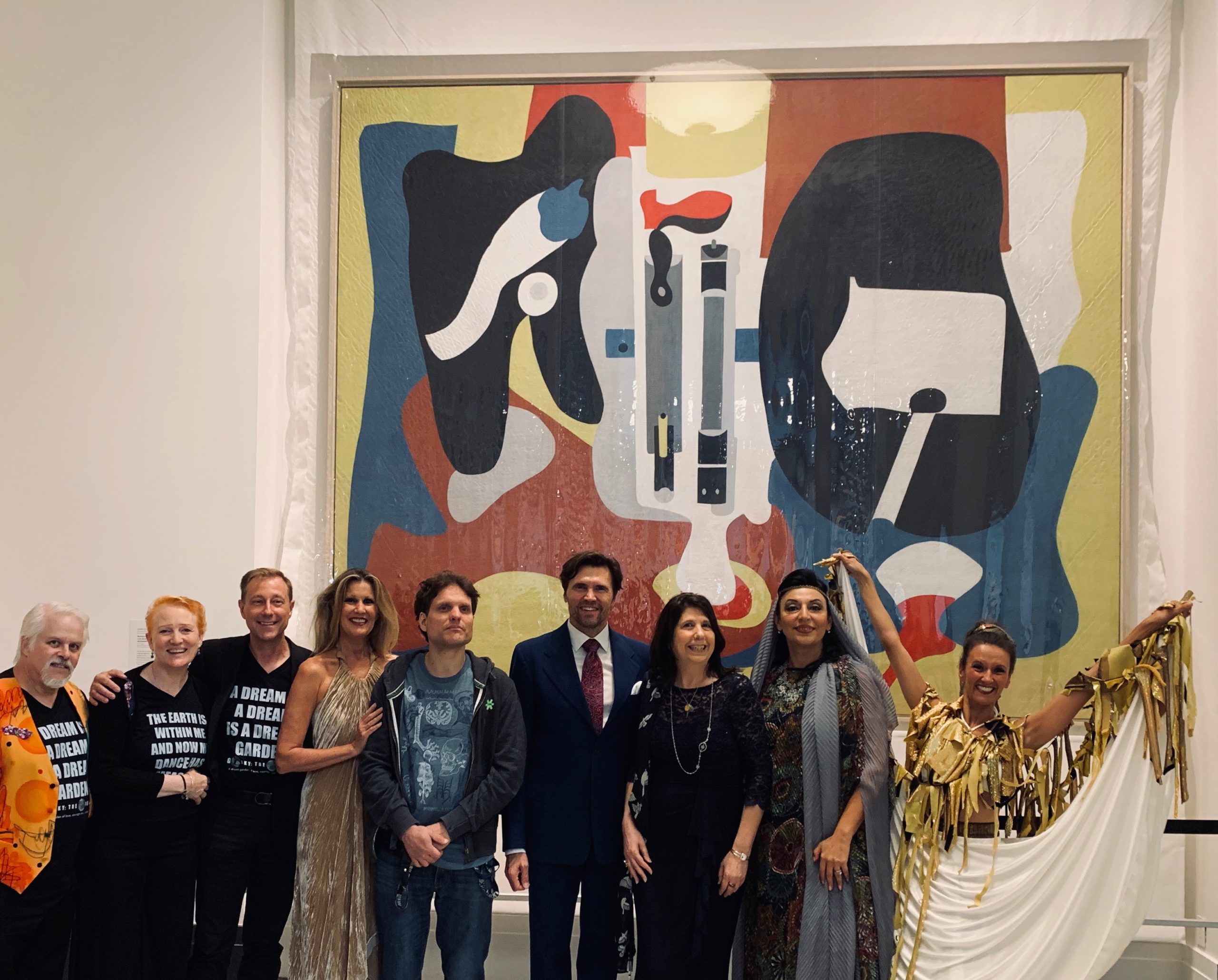
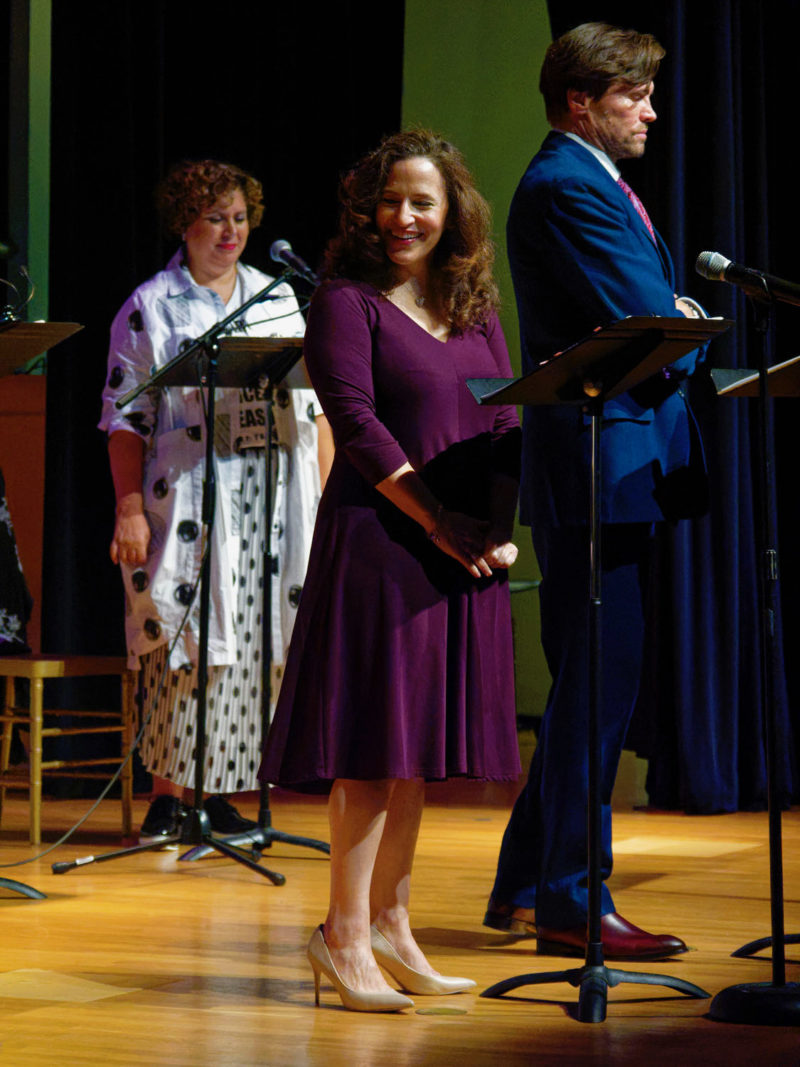
Charged with contemporary immediacy, crossing of shifting time zones (real and dream time), pivotal points of stasis and differing points of view, “Gorky’s Dream Garden” approaches the intensified continuity of cinema. Its dazzling music hails from Ekizian’s opulent symphonic orchestration — shining forth in the Showscape’s virtuoso chamber rendition. The score melds, old Armenian hymns, folk tunes and lullabies, jitterbugging monologues, exhilarating Russian style waltzes, Neapolitan love song, bel canto, power ballads, and a rhythm section of electric guitars and drum set. Broadway veteran, bari-tenor/actor Brent Barrett portrayed the complicated artist with a captivating soulful affinity. Traversing the role’s wide range of singing styles, he gave the necessary exotic Russian/Armenian imperious stance while also exuding suave and sultry charisma. But he held steadfast to Gorky’s grace and his creative rigor with wonder and innocence. The perfect foils for the mysterious “phantom of the opera” mystique of Gorky are the roles of the ghost spirit of his courageous martyred mother and his capricious ingénue American bride.
Mezzo-soprano Hasmik Mekanedjian and soprano Karen Lubeck were naturals.
In quick cutting dialogue over music, the Art Whisperers acting duo portrayed Gorky’s friends, supporters, critics and foes including art world luminaries and Mayor Fiorello LaGuardia. New York actors Adela Maria Bolet and John Sannuto performed their multiple roles with the necessary satire and high voltage.
